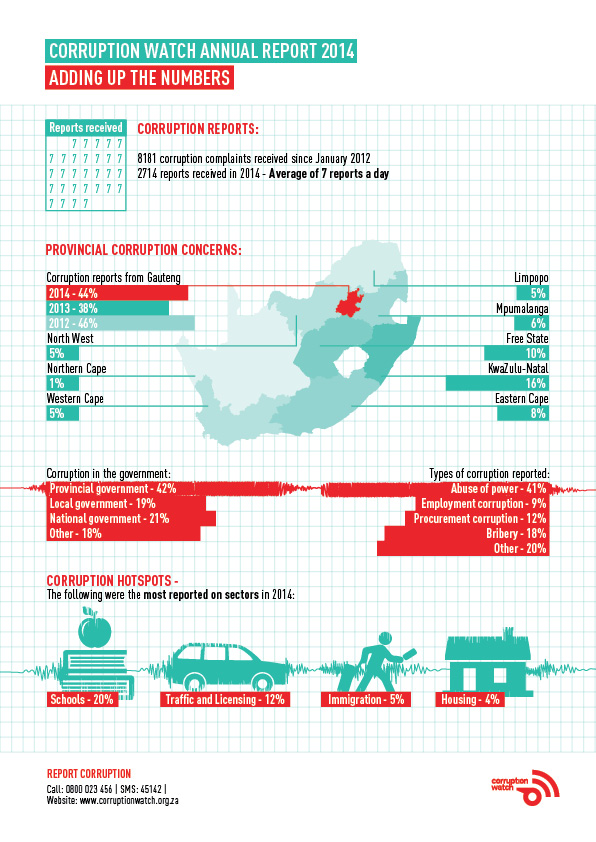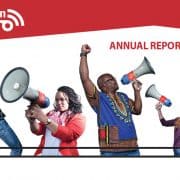|
Getting your Trinity Audio player ready...
|
 Corruption Watch has released its third annual report, and marked its three-year anniversary of operations.
Corruption Watch has released its third annual report, and marked its three-year anniversary of operations.
Under the theme of My Hands Are Clean, the publication bears a distinctive polygraph cover which speaks about honesty and integrity.
Corruption Watch data reveal that the watchdog organisation received a total of 8 181 corruption complaints in the three years since its inception to the end of last year. Of these, 2 714 were submitted in 2014, which is a 17% increase in reports over the previous year. It translates to an average of seven reports received a day.
Of these, 56% were confirmed as corruption in terms of Corruption Watch’s official definition: corruption is the abuse of public resources or public power for personal gain. Corruption Watch is concerned with any such abuse by anyone at any level of government or in business.
“The influx of reports evidences the positive response we have received from the public, and is an indication that people have had enough and are starting to object to what is going on around them. We are also affirmed by the continued willingness of public sector employees to report corruption in their own ranks. It gives us confidence that the fight is worth fighting,” said executive director David Lewis.
Abuse of power prevails
The 2014 report reveals that abuse of power is the most prevalent type of corruption, constituting 41% of all the complaints received in 2014. The most dominant sectors featured in reports include schools, traffic and licensing, immigration and housing.
The report highlights progress in the organisation’s ongoing schools campaign, and details various milestones marked during 2014 – they include a song targeted at the youth sector, a photo and essay competition for young people across the continent, and a number of investigations.
A Corruption Watch survey conducted via Mxit revealed that 84% of South African youth involved in the study were concerned about corruption. Out of over 6 000 respondents between the ages of 14 and 34 who participated in the survey, over half claimed that they would like to take part in an anti-corruption campaign.
“As a result, this year we will be focusing on amplifying the voice of the youth. We approach the youth on the basis that they are innovators, the leaders of today, not the leaders of tomorrow. There is no reason to expect that they will not play a leading role in the struggle against corruption,” said Lewis.
To learn all about these matters, and more, download our annual report now, browse through it using the widget below, or read it online at Issuu.







